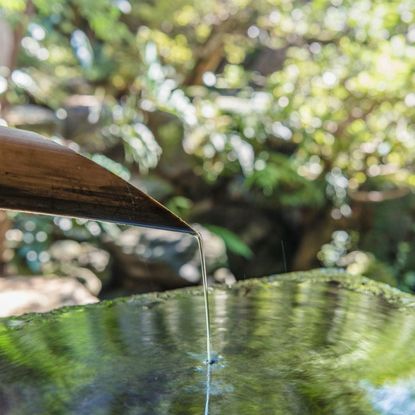Wabi-Sabi Garden Design: Implementing Wabi-Sabi In Gardens

Have you heard of wabi sabi garden design? The wabi sabi aesthetic grew out of Buddhist philosophy in Japan and involves an appreciation for the forms and changes of natural landscapes. Wabi sabi gardening allows the gardener and visitors to explore the beautiful ways nature changes manmade objects and landscapes.
What is Japanese Wabi Sabi?
Wabi sabi can be defined as “beauty in imperfection” and can incorporate asymmetry, incompleteness, impermanence, and simplicity. In addition to gardens, wabi sabi influences many other aspects of Japanese art and culture, such as the tea ceremony and pottery making, and it is also seen as a way of life.
A garden based around wabi sabi incorporates natural and manmade elements in a way that allows visitors to appreciate their humble and imperfect forms. This typically involves using not only plants but also stones and weathered manmade objects as design elements.
Wabi Sabi Gardening Ideas
One way to incorporate wabi sabi garden design is to choose plants and objects that will change over time as the seasons change and the elements go to work on them. Adding plants that provide natural textures in different seasons, like a tree with textured or peeling bark, is a great way to do this.
Other ideas include allowing plants to go to seed and display their seed pods during the fall and winter and allowing dry leaves to fall and remain on the ground under a small tree. Wabi sabi in gardens can be a way of imitating natural environments in a cared for garden.
To explore natural changes in your wabi sabi garden, plant perennials and self-seeding plants that will establish their own corners of the garden over the course of years. Place stones in locations that will not receive foot traffic so that moss and lichens will grow over them.
Repurposing old manmade objects is another part of wabi sabi garden design. For example, you can place iron objects that will rust over time, such as old gardening tools and gates, around your garden.
Gardening tips, videos, info and more delivered right to your inbox!
Sign up for the Gardening Know How newsletter today and receive a free download of our most popular eBook "How to Grow Delicious Tomatoes."
Ilana Goldowitz Jimenez is a scientific and agricultural writer with a B.S. in Plant Sciences from Cornell University and a PhD in Chemical Biology and Infectious Disease from Harvard University.